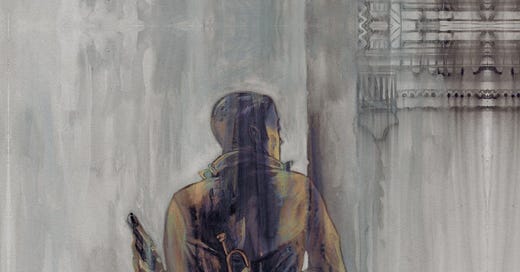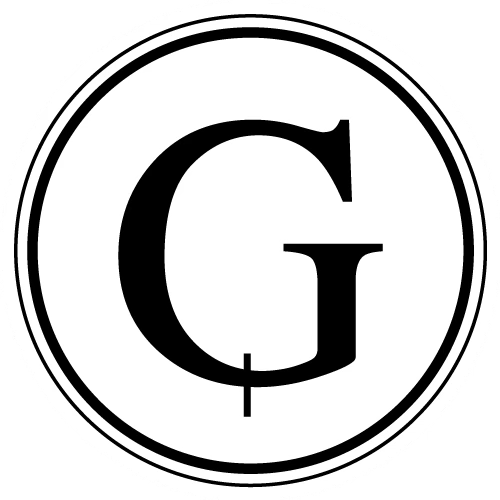What follows is Part 14 of Becoming P.T. Lyfantod
If you missed Part 1, start there:
A short while later I was up in my room, seated at the desk beside my bed, pen in hand, my history textbook to my right, staring at a blank sheet of paper.
Well, it wasn’t entirely blank. I’d written my name in the upper corner, along with the date. Friday’s date, actually. So Mrs. Williams wouldn’t think I’d started the day before it was due. I was supposed to be writing on the history of coal mining in Wales, a subject I would no doubt be deeply conversant in, had I actually spent the day reading about it. Mrs. Williams got very worked up about coal mining. One of her uncles or someone had died in an accident. She could go on and on about cave-ins, strikes, labor shortages, and the general injustice of it all for ages.
The tip of my pen left blue dots scattered in the margin as I tapped the page. There was nothing for it but to jump in. The history of coal mining in Wales, I wrote, is long and interesting but—of course—full of terrible injustices. I added how it was important to our cultural identity and enriched our people but also came with a great human cost before pausing to look over what I’d written. I nodded. A solid introduction. This wouldn’t be so hard. If I kept on about the injustices, I’d be sure to get good marks.
My eyes drifted sideways—to the bag hanging off the side of my bed. I was tempted to reach over and take out the Book. Not to read, of course. Just to look at for a second. I fought the urge, wrested my attention back to the page, and started on the first body paragraph. In an inspired turn, I decided to begin with the collapse of the spoil tip of the colliery in Aberfan in 1966, one of the most notorious disasters in Welsh coal mining history. Mrs. Williams would be thrilled.
I wrote as best I could from memory, but the details were foggy. Still, I thought I was doing quite well. In any case, this was just a first draft, so it didn’t have to be good, just long enough to call finished. Thanks to large letters and generous margins, I’d already filled eight lines. I was sure it’d be a cinch to write the rest before bedtime…but I was having trouble concentrating. Mam-gu’s potatoes were making me heavy-headed. To do my best work, I needed a break. A refresher. I set down my pen and climbed into bed with every intention of returning to the paper in five minutes or so. It didn’t quite work out that way.
I fished the Book from my rucksack and lay back against the headboard. Flipping through pages I’d marked for later reading, I landed on an entry regarding the Fomorians—the enemies of the Tuatha Dé. In this essay, which said nothing of what the Fomorians looked like, Willoughby argued that they’d played a far greater role in history than anyone realized. Fair enough, I thought, since I hadn’t known they’d played any. Partway through the third paragraph, I was diverted by an annotation:
I was much enlightened when I discovered a dusty manuscript attributed to the 15th century Irish bard, Cyril Lightfoot97, or at least one of his immediate followers, who claimed to have had many encounters with the Fomor—
I flipped to the index. There was a whole entry on Cyril Lightfoot on page 236, a study of the aforementioned dusty manuscript entitled The Standing Stones of Cyril Lightfoot. It explained that he was a legendary bard, a traveling warrior-musician who led armies to stand against the Fomorians, whose quest was to reclaim the lands they believed rightly theirs and purge them of men.
Fighting with magic weapons and song-spells, Lightfoot held them at bay and was considered a great hero with many followers and devotees. After being wounded in battle, he’d vanished, believed dead. But according to Willoughby’s manuscript, he’d not only survived but lived on for years, cementing his legacy with a series of standing stones—pillars of rough granite—that would somehow prepare future generations to continue his fight. The manuscript suggested the stones needed to be visited in order, each revealing the location of the next. To Willoughby’s knowledge, no one had ever found the first.
This is no doubt because they have been looking in the wrong place. Lightfoot being Irish, everyone who knew to look for them assumed they’d find the stones in Ireland. But after careful examination of the facts, I’ve determined that after the battle that nearly killed him, Lightfoot fled across St. George’s Channel to Wales and spent his recovery in or near the town of Swansea (Welsh: Abertawe). It is there I believe the first stone to be hidden. Due to several factors—the foremost being that the stone hasn’t yet been found by some developer—I guess the location to be somewhere in the Clyne Wood (see Appendix D), a patch of forested land west of the city, one of the only places it might reasonably be expected to go undiscovered all this time. I’ve not had the chance to make a proper survey of the area, but I’ll wish to do so when time permits.
I reread it three more times, disbelieving. Clyne Woods? Clyne Woods? That was practically next door. I could walk there! Or better yet, ride. I paced. I sat on my bed and read the entry from start to finish. Appendix D held a black-and-white map of Swansea with Clyne Woods highlighted. It was so close. If I squinted, I thought I might be able to make out my house. I considered sneaking out then and there to hunt for Lightfoot’s stone. And I might have, if it weren’t for the partially-written essay on my desk.
“Did you really stay home to do schoolwork?” Rudy asked.
“You’re suggesting I should’ve simply prepared for the verbal thrashing I’d get from Mrs. Williams when I showed up without it?”
“Obviously!”
“It isn’t as though I wanted to finish the bloody paper—”
“Way I see it, you lack a sense of adventure.”
“This from the boy who almost got himself eaten by giant rats.”
“Rubbish! I did not almost get eaten. I’d eat them if anything.”
“Gross.” Coira grimaced.
“And that proves my point. You waited outside while she—”
“I’d have gone in if I’d fit!” I snapped. “In case you hadn’t noticed, I’m rather tall. And my sense of adventure is plenty healthy, thank you. Anybody without a sense of adventure would have gone home sometime around your basement. Look around you! Clearly my sense of adventure is too healthy.”
“If I were you, I’d’ve gone out right then and found that stone and…done whatever it is you do with it. Enough with all this reading.”
“Well, if I hadn’t been reading, I wouldn’t’ve known about the stone, would I? Why am I arguing with an eleven-year-old?”
“I’m twelve, you—”
“And I’ll have you know that it’s a good thing I didn’t go, because of what happened next.”
“What happened?”
“You’d know that if the two of you would stop interrupting.”
“Oh go on then!”








